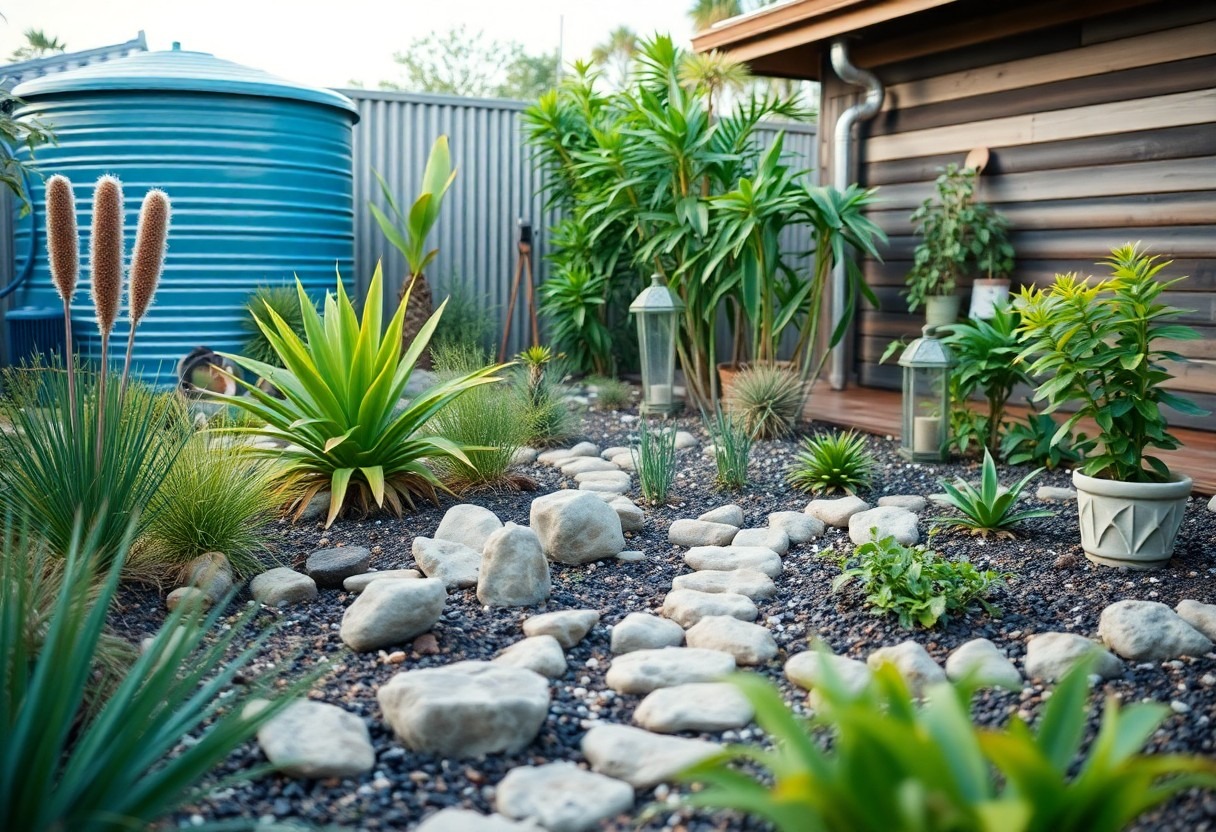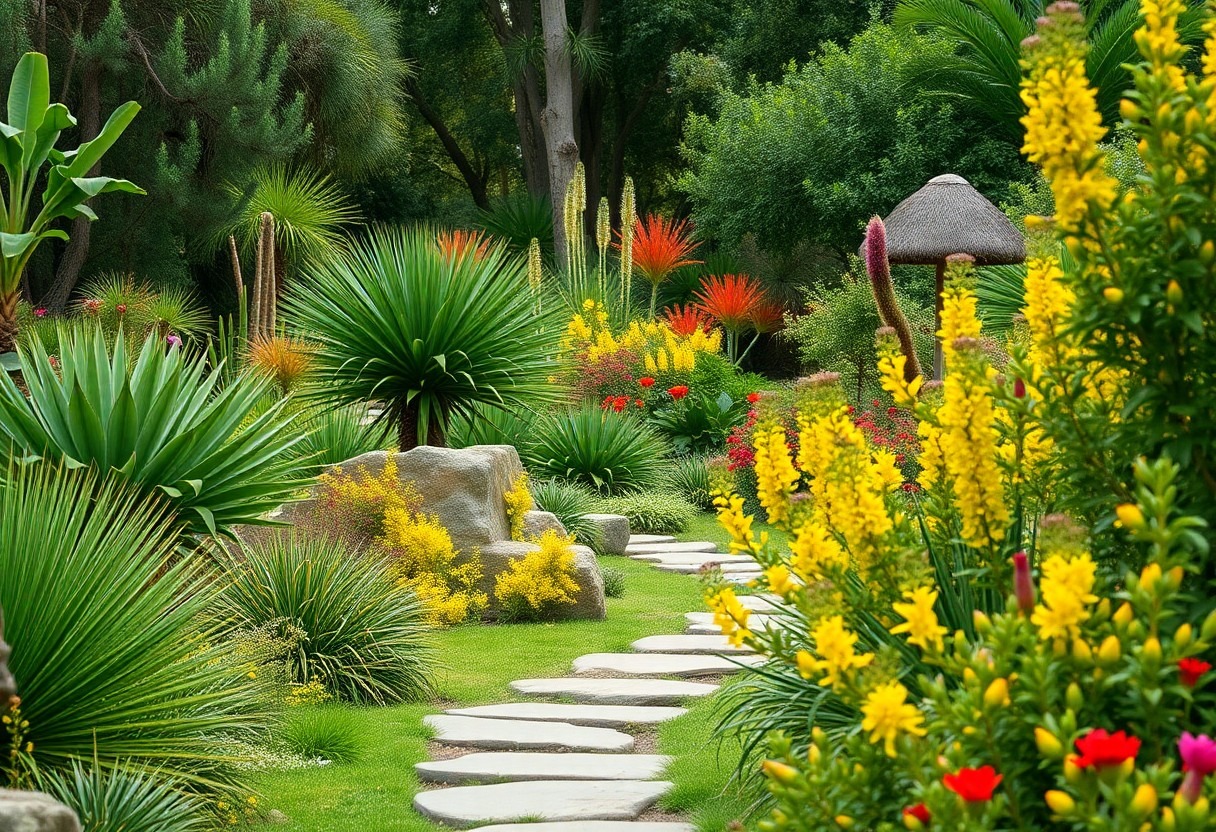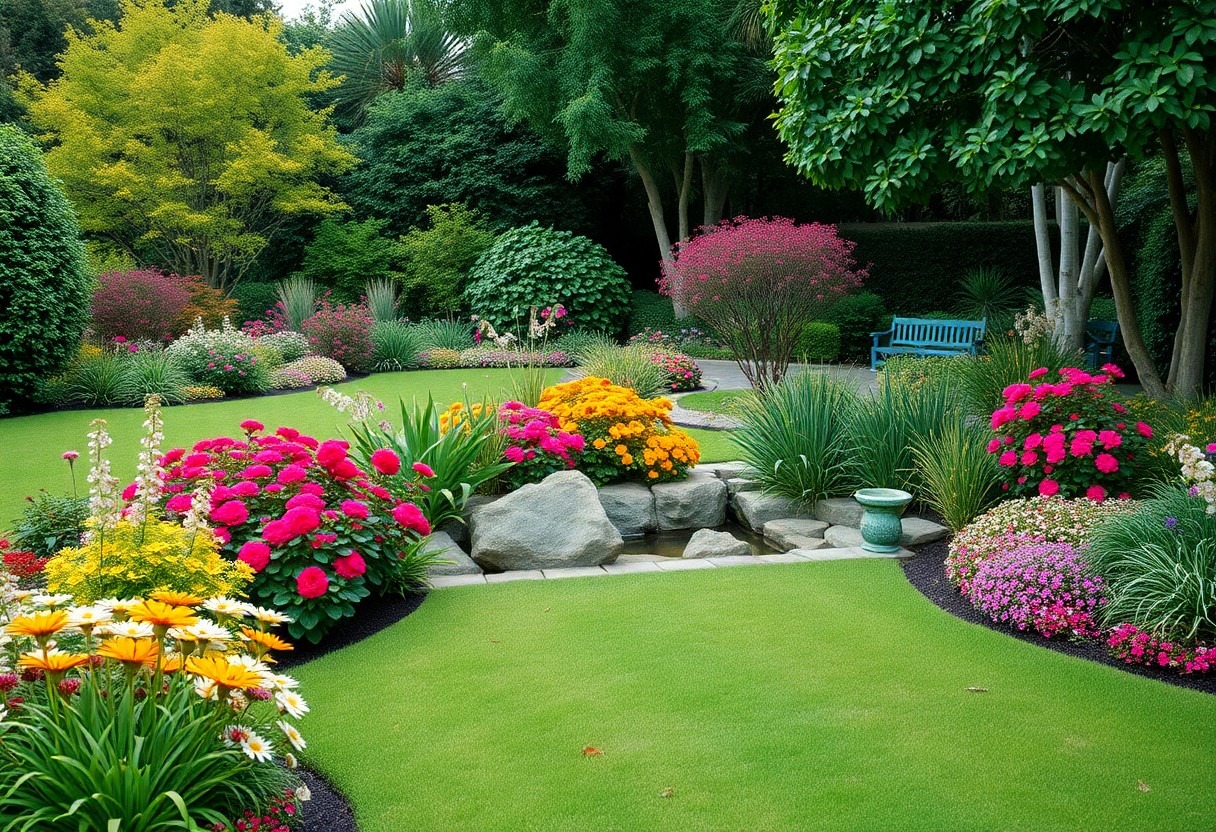Most homeowners in Helensvale are becoming increasingly aware of the need for sustainable landscaping solutions that conserve precious water resources. By adopting water-wise gardening techniques, you can create a lush, beautiful landscape while reducing your environmental impact. This blog post will explore practical strategies and tips that not only promote responsible water use but also enhance the overall health of your garden. Join us as we uncover how you can transform your outdoor space into a vibrant, sustainable haven that thrives amid changing climate conditions.
Understanding Water-Wise Gardening
Before you launch on your water-wise gardening journey, it’s crucial to grasp the underlying concepts that make it effective. Water-wise gardening focuses on choosing plants and techniques that minimize water usage while promoting healthy growth. By adapting your landscaping practices, you can create a sustainable and resilient garden that thrives even in dry conditions, ensuring both environmental benefits and an attractive outdoor space.
Principles of Water-Wise Gardening
Below are some key principles of water-wise gardening you can implement. Prioritize native and drought-tolerant plants, which are better adapted to your local climate. Incorporate efficient irrigation methods, such as drip systems, to target the roots directly, reducing water wastage. Lastly, implement mulching and soil health strategies to retain moisture and support plant vitality.
Benefits of Sustainable Landscaping
Gardening sustainably offers numerous advantages that extend beyond mere aesthetics. By choosing eco-friendly practices, you support a healthier ecosystem, conserve water, and reduce your carbon footprint. Sustainable landscaping promotes biodiversity, creating habitats for wildlife, while also providing you with a vibrant and resilient garden. Moreover, it may even lead to savings on water bills and maintenance costs.
Sustainable landscaping focuses on creating a balance between your gardening needs and the environment. By integrating energy-efficient techniques, you not only reduce your overall impact but also enhance the resilience of your garden. Implementing strategies like rainwater harvesting and using native plant species can lead to significant reductions in water consumption, ensuring that your landscape flourishes even during dry spells. Moreover, the beauty of a sustainable garden contributes positively to local biodiversity and fosters a healthier surrounding ecosystem.
Planning Your Water-Wise Garden
The first step to creating a water-wise garden is effective planning. By understanding your landscape’s unique characteristics, you can incorporate sustainable practices that will save you resources and enhance your outdoor space. You can learn more about sustainable gardening techniques by visiting Waterwise Yards: Sustainable Colorado Gardens …. This resource can provide valuable insights as you initiate on your water-saving journey.
Site Assessment and Design
Along with assessing your site, it’s important to consider how your garden design can maximize water efficiency. Take note of sun and shade patterns, soil type, and existing plants. By carefully planning your layout, you can achieve a balanced garden that thrives with minimal water input.
Choosing Native and Drought-Resistant Plants
Among the best strategies for water-wise gardening is selecting native and drought-resistant plants. These plants are adapted to your local climate and require significantly less water, making them ideal choices for sustainable gardens.
It’s important to focus on native plants as they have evolved to thrive in your environment, thereby reducing the need for additional watering. Incorporating drought-resistant varieties will not only help conserve water but also support local biodiversity and wildlife habitats. Additionally, these plants are typically more resilient to pests and diseases, leading to lower maintenance requirements. Making informed selections for your garden will lead to a vibrant, sustainable landscape that respects the natural resources of Helensvale.
Efficient Water Management Techniques
Any gardener can benefit from implementing efficient water management techniques to conserve resources, improve plant health, and ensure a thriving landscape. By incorporating strategies like rain gardens, swales, and optimized irrigation systems, you can create a sustainable garden that is both beautiful and environmentally friendly. These methods not only reduce water usage but also enhance the natural aesthetics of your Helensvale garden.
Rain Gardens and Swales
Between the natural beauty and practicality of rain gardens and swales, you can effectively manage stormwater runoff while promoting a healthy ecosystem. These features help capture and absorb rainwater, reducing erosion and providing much-needed hydration to local flora. By integrating these elements into your landscaping, you’re paving the way for a greener, more resilient environment.
Irrigation Systems and Their Optimization
Efficient irrigation systems can drastically reduce water waste while ensuring your plants receive adequate moisture. By investing in technologies such as drip irrigation, smart controllers, and moisture sensors, you can tailor the watering schedule based on actual needs. This ensures that your plants thrive without excess water, helping you save on your water bill and reduce the risk of wasteful runoff and waterlogging. Moreover, these systems allow you to conserve precious resources and make a positive impact on the local ecosystem.
The optimization of your irrigation system is vital for maintaining a healthy landscape while being conscious of water conservation. By conducting regular maintenance checks and adjusting watering schedules according to seasonal changes, you can ensure that your garden stays hydrated and vibrant. Utilizing rain sensors will prevent unnecessary watering during wet periods, while timers can help categorize your watering schedule to avoid over-saturation. Essentially, investing a little time and effort into optimizing your irrigation can lead to notable water savings and promote a thriving, sustainable garden.
Soil Health and Water Retention
Despite being an often-overlooked factor, healthy soil is necessary for effective water retention in your garden. When you focus on improving your soil’s organic matter and structure, you enhance its ability to hold moisture, reducing the need for frequent watering. By incorporating compost and natural amendments, you can transform your garden into a thriving ecosystem that nurtures plants while conserving water. This sustainable approach not only benefits your landscape but also contributes positively to the local environment.
Improving Soil Structure
Soil plays a significant role in water retention capabilities. By improving your soil’s structure, you create a more porous environment that helps to manage water more effectively. Techniques such as aeration, adding organic matter, and rotating crops can enhance soil structure, allowing water to penetrate deeper and stay available to your plants for longer periods. This results in a healthier garden and reduces the need for excessive irrigation.
Mulching and Its Benefits
One of the most effective strategies for conserving moisture in your garden is mulching. By covering the soil surface with organic materials like straw, wood chips, or grass clippings, you can significantly reduce evaporation. Mulch not only protects the soil from temperature fluctuations but also adds nutrients as it decomposes, fostering beneficial microbial activity. Moreover, it helps suppress weeds, which compete for water and nutrients, allowing your plants to thrive with less water input.
Understanding the benefits of mulch goes beyond aesthetics. By applying a layer of organic mulch, you can reduce water consumption by minimizing surface evaporation, thereby saving on your water bill! Mulch also contributes to soil health by breaking down over time, enriching your soil with organic matter. Additionally, maintaining a thick layer of mulch can help prevent erosion, promote a balanced ecosystem, and create a rich habitat for beneficial organisms, ensuring your gardening efforts yield vibrant plants while conserving precious water resources.
Pest Management in Water-Wise Gardens
For sustainable landscaping in Helensvale, effective pest management is vital for water-wise gardens. You can maintain a healthy ecosystem by integrating pest control techniques that minimize chemical use. By understanding your garden’s unique pest challenges, you can create a thriving environment that encourages beneficial flora and fauna while protecting your plants from harmful invaders.
Integrated Pest Management Practices
Before implementing any pest control measures, assess your garden to identify potential issues. Integrated Pest Management (IPM) incorporates various techniques like regular monitoring, cultural practices, and biological controls to manage pest populations sustainably. By prioritizing prevention and using targeted interventions, you can effectively mitigate pest damage while conserving resources.
Encouraging Beneficial Insects
Along with monitoring pest levels, you should actively promote the presence of beneficial insects, as they play a pivotal role in maintaining your garden’s health.
And by planting diverse flowering species and providing habitats like native plant hedgerows, you can attract pollinators and predatory insects such as ladybugs and lacewings. These organisms will help control pest populations naturally, reducing your reliance on pesticides. Additionally, creating habitats with compost piles or rocky areas can support the life cycles of these beneficial insects, thus ensuring a balanced ecosystem within your water-wise garden.
Community and Resources in Helensvale
Once again, Helensvale offers a vibrant community dedicated to sustainable gardening. Engaging with local residents and organizations can enhance your water-wise gardening journey. Embracing the collective knowledge and resources available will not only deepen your understanding of sustainable practices but also foster a sense of belonging among fellow eco-conscious gardeners.
Local Gardening Groups and Workshops
Before you explore your gardening endeavors, consider joining local gardening groups or attending workshops held in Helensvale. These gatherings provide valuable insights, shared experiences, and camaraderie with like-minded individuals who are also focused on water-wise practices. Engaging with others can inspire you to try new techniques and deepen your commitment to sustainability.
Available Resources for Sustainable Practices
Sustainable gardening in Helensvale is supported by various resources designed to assist you with environmentally friendly practices. With numerous local institutions and online platforms, you can access information, tools, and expertise to help you cultivate a thriving garden that conserves water and promotes biodiversity.
Further, you can explore a range of programs, such as the local Water Wise Program, which provides vital tips on efficient water use and gardening techniques. There are also workshops on native plants and their benefits, offering a chance to learn how to incorporate them into your landscape. Additionally, local community gardens often share resources like composting initiatives and seed banks, which promote nutrient-rich soil for your plants. By tapping into these opportunities, you can maximize the health and sustainability of your garden while minimizing your ecological footprint.
Conclusion
Now that you understand the principles of water-wise gardening, you can create a sustainable landscape in Helensvale that conserves water and enhances your outdoor space. By selecting native plants, implementing efficient irrigation systems, and designing your garden with resilience in mind, you can enjoy a beautiful, eco-friendly environment that complements your lifestyle. Start making these mindful choices today and contribute to a healthier, more sustainable community.



